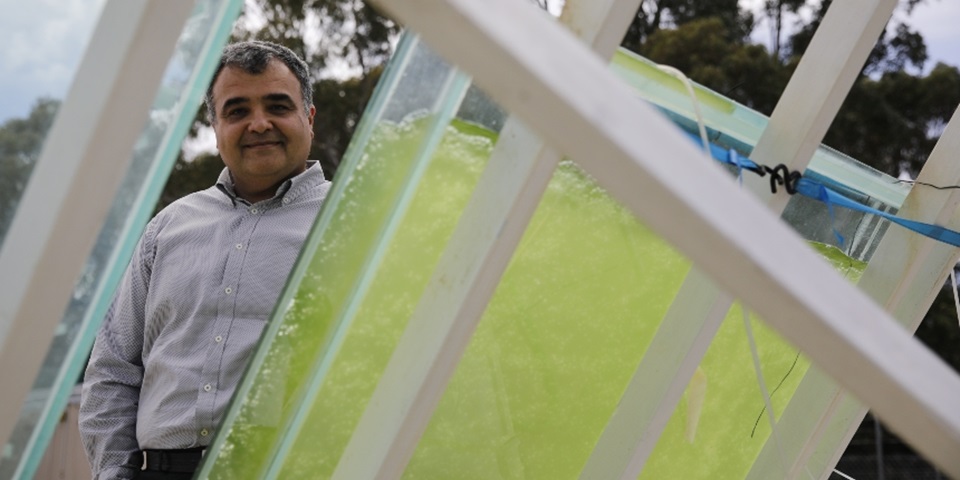News
Algae feeds breakthrough solutions in the search for net zero

Murdoch University’s commercial algae spin-off Algae Harvest has struck another significant partnership to develop renewable energy applications for its research.
New ways to use algae to turn waste into high value products are under development at Murdoch University to accelerate the country’s drive to achieve net zero greenhouse gas emissions.Transforming energy generation and clean manufacturing are priority areas in the Western Australian Climate Policy – and the focus of industry partnerships struck by Algae Harvest, Murdoch’s commercial algae startup.
“We are using microalgae to generate high value products from waste processes and developing new ways to produce bio-fuel – a huge opportunity for industry and the Western Australian economy,” Professor Navid Moheimani, Algae Harvest Chief Scientist said.
Microalgae also provides an efficient means to treat wastewater, capture carbon and algal based bioplastics can decrease the use of fossil fuels.
The new partnership with green energy company Cyclion is exploring the role algae can play in turning the waste bound for landfill or the sea into electricity and energy.
“We’re converting household waste into energy,” Philip Major, Cyclion Founder and CEO, said.
“It’s estimated that 6.1 million tonnes of plastics enter aquatic environments each year, with 1.7 million tonnes entering ocean – that could all be harnessed for energy generation.”
Cyclion has developed a process to liquify plastics and biomass, like food scraps, paper and wood, and convert it into fuel for electricity generation while minimising harmful emissions.
The system works like a washing machine, taking mixed waste and running it through various catalytic cycles. At each cycle the waste is liquified and degraded until in the end all that’s left in the tank is inorganic matter – solid glass or metals – that can be separated and recovered.
What’s been degraded becomes an oil that can then be further processed as fuel or converted into a flammable gas to generate electricity.
Murdoch scientists have been engaged through Algae Harvest to use algae to purify the water and exhaust gasses from the process, removing any residual heavy metals and allowing the water to be recycled.
On top of reducing the potential environmental impact of Cyclion’s process, the algae grown has commercial applications.
“The microalgae that feeds on those contaminants can then be used to generate various commodity products such as animal feed, aquaculture feed or fertilisers. We will also investigate opportunities to extract molecules with higher values such as pigments from the biomass,” Professor Moheimani said.
The Brisbane-based Cyclion is already in advanced discussions with multinational conglomerates in the Philippines about a potential project worth over AU$150 million. The project will see Cyclion’s technology be used to turn mountains of waste dumped in Southeast Asia into electricity or fuel for international distribution.
The partnership with Cyclion comes after Algae Harvest struck an agreement earlier this year with Spinifex Brewing Co. to transform brewery waste such as spent grain and yeast into value-add products. Learn more about sustainability research at the Harry Butler Institute.
News
Algae feeds breakthrough solutions in the search for net zero
Posted on
Topics